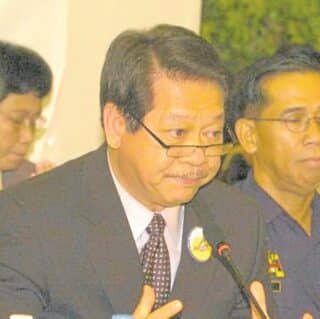Solicitor General Francis Jardeleza’s petition is an unprecedented move by an aspirant to a seat in the Supreme Court, the highest court of the land. After being excluded from the short-list of nominees submitted to President Aquino on account of a challenge to his integrity raised by some of the very members of the Court (whose ranks he seeks to join) under Section 2, Rule 10 of the Rules of the Judicial and Bar Council (JBC), the solicitor general asked the Supreme Court to prevent the President from appointing a new associate justice to take the place of retired associate justice Roberto Abad, and to compel the JBC to include his name on the short-list.
Jardeleza is clearly pursuing a case which is personal in nature, neither institutional nor on behalf of the government he represents. This personal cause has set him against his principal, the government of the Philippines, primarily represented by the President, against whom he is seeking a temporary restraining order to keep the latter from exercising his constitutional duty to appoint a replacement for a retired justice. It also sets him against the JBC which is also part of the government.
Were the JBC’s actions and decisions challenged by any other person, the solicitor general would be duty-bound to defend it, as his office has done in several past controversies over the power of the president to appoint judges and justices. By seeking to invoke the powers of the Supreme Court against both the chief executive and the JBC, the solicitor general is clearly placed in a position of absolute conflict of interest: as the chief litigator of the Philippine government, he has filed and is pursuing a case against his own client. He is also effectively setting the stage for a legal confrontation between the Supreme Court and the President, whereby the latter’s appointing power will be subject to restraint by the former, thus diminishing the executive’s prerogatives and upsetting the system of checks and balances under the Constitution. And the purpose of such a case is ultimately not to benefit his client, but himself.
If Jardeleza wishes to invoke the Supreme Court’s power of judicial review to override these offices and have his name included on the short-list of candidates, I submit that he cannot do so while still the chief litigator of the government and of all its offices and agencies, especially the Office of the President and the JBC. The conflict of interest here is quite clear. As such, the honorable thing for Jardeleza to do while he is pursuing this course of action is to first resign his position in government. Otherwise, he will only erode the barriers between public duty and personal privilege, and undermine the very foundations of integrity and probity necessary for the position he applies for. Resignation from his current post, and the purely personal pursuit of remedies for his grievance, is the only way by which he can credibly and honorably continue his quest for a new office.
—PURIFICACION BARTOLOME-BERNABE,
president, IBP Bulacan Chapter




